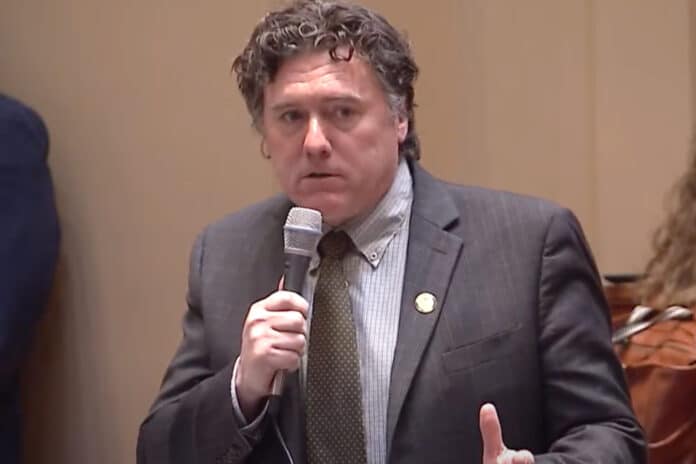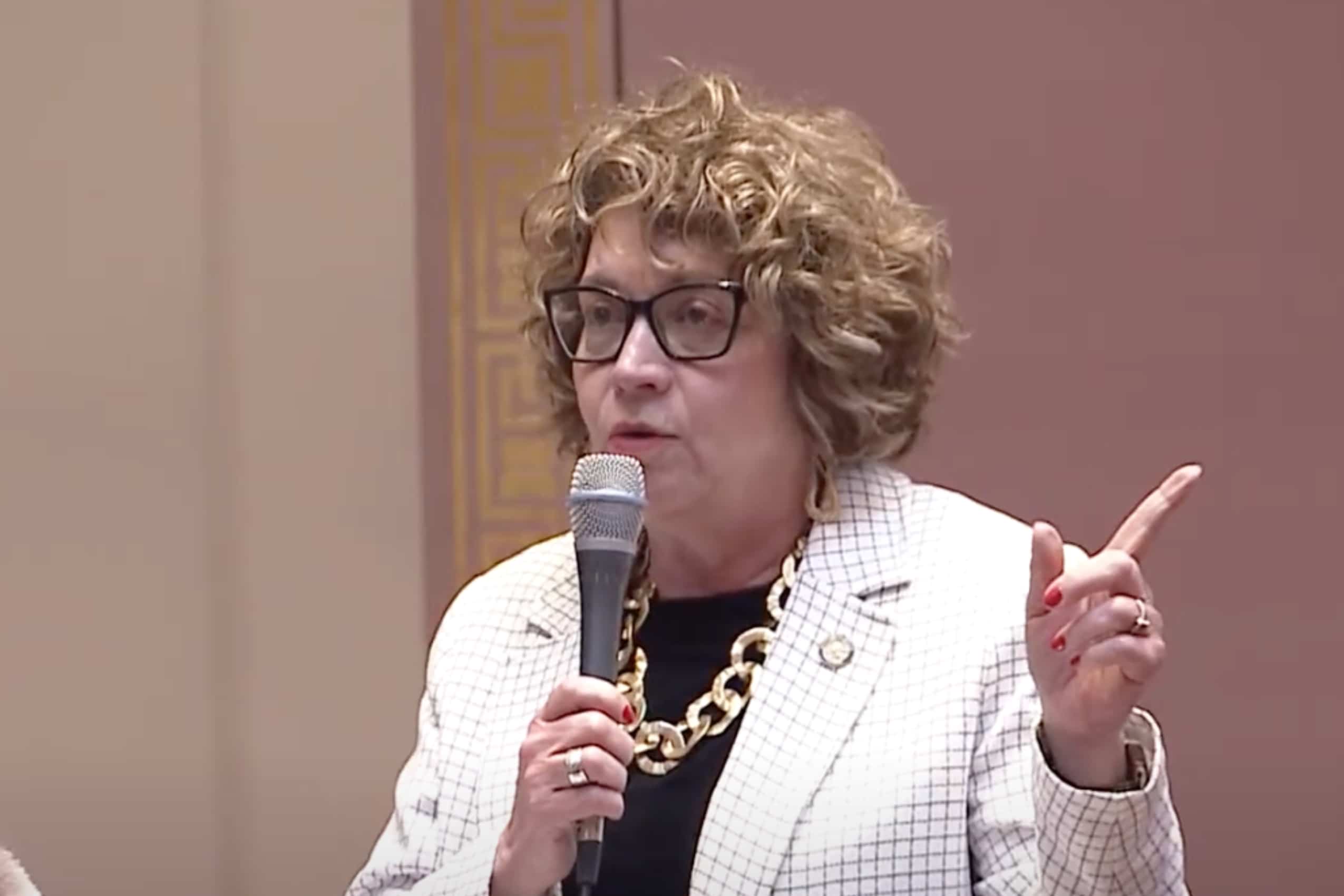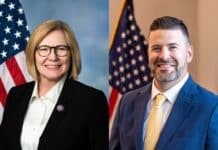
A St. John’s University professor moonlighting as a legislator is carrying a bill this session that would codify into law “academic freedom” protections for post-secondary faculty. But this week he voted against a similar measure that would expand that philosophy to students in college classrooms.
Sen. Aric Putnam, of St. Cloud, was one of five DFL lawmakers who voted against an amendment on the Senate floor Monday that aims to protect students’ free speech and expression in the classroom and their course work. The others who voted against the amendment were Sens. Erin Maye Quade, of Apple Valley, Erin Murphy and Sandy Pappas, both of St. Paul, and Melissa Wiklund of Bloomington.
Sen. Carla Nelson, R-Rochester, offered the amendment on the Senate floor during debate on an omnibus higher education bill, saying it would ensure there is a fair playing field when it comes to viewpoint expression between professors and their students in the classroom.
“Just as we have academic freedom for faculty, it is unconscionable that we would not have academic freedom for students,” Nelson told her Senate colleagues in explaining her amendment, which would “prohibit faculty, in their official capacity, from requiring students to express specified social or political viewpoints for the purposes of academic credit.”
Nelson’s amendment, which the Senate approved 60-5, contains three other clauses that would ensure classrooms “honor free student inquiry and discussion,” “require student assessments to be based on appropriate knowledge of subjects and disciplines studied and prohibit discrimination on the basis of political, ideological, or religious beliefs,” and “restrict the introduction of controversial matters without a relationship to the subject being taught.”
Putnam asks for evidence of faculty bias in the classroom
Putnam voted in opposition to the amendment after a lengthy debate with Sen. Jim Abeler, R-Anoka, over whether there is any evidence that exists on college campuses of professor bias toward students whose ideological viewpoints differ from their own. The second-term legislator, who teaches rhetoric courses at St. John’s University and the College of St. Benedict, said that if anyone viewed his syllabi, they would have “no idea of my political inclinations.”

“…I’ve had conversations with students, heartbreaking conversations with students, who have felt that they got that particular grade because of their political view,” Putnam said. “And after a brief conversation, I found that that probably wasn’t the case. Their pain is real though. Their anxiety is real, the intimidation, that our friend Sen. Pratt was mentioning, all of that is real.”
Putnam presented his academic freedom for faculty bill, SF4416, last month during a hearing in the Senate Higher Education Committee. He brought in a handful of college professors, including Jenna Chernega, who testified in support of the bill, explaining its timing as necessary to prevent Minnesota from joining eight other states that “have enacted laws aimed at higher education with curriculum content restriction.”
“Unfortunately, today, we must work to act to protect academic freedom because we see that cornerstone crumbling in other areas of the country,” said Chernega, a sociology professor at Winona State University and president for the Inter-Faculty Organization, which represents professors in the Minnesota State Colleges and Universities system.
“With this bill Minnesota has the opportunity again to distinguish itself as a destination for the best and brightest from across the country,” she continued. “We have the opportunity to not only say we value education, but we particularly value education that espouses a diversity of opinions, includes a variety of voices and that empowers college and university faculty to do what they do best: to research and teach the truth.”
Putnam’s bill would only govern the campuses included in the MnSCU system, as the University of Minnesota is a land-grant institution.
While that provision has been incorporated into the Senate’s omnibus education policy bill, it was not included in the House version. A conference committee that will work out differences between those bills will decide the fate of both Putnam’s bill protecting faculty academic freedom, and Nelson’s amendment protecting student free speech in the classroom.
Sen. Eric Pratt, R-Prior Lake, expressed support for including both in a final version of the legislation.
“If it’s so important that we set that freedom in state statute, and a professor has a position of influence and power over a student, why wouldn’t we provide that same statutory protection to that student?” Pratt said Monday on the Senate floor.
“We want these higher institutions to have exactly what Sen. Putnam said,” Pratt continued. “We want them to have that give and take.”
Hank Long
Hank Long is a journalism and communications professional whose writing career includes coverage of the Minnesota legislature, city and county governments and the commercial real estate industry. Hank received his undergraduate degree at the University of Minnesota, where he studied journalism, and his law degree at the University of St. Thomas. The Minnesota native lives in the Twin Cities with his wife and four children. His dream is to be around when the Vikings win the Super Bowl.















